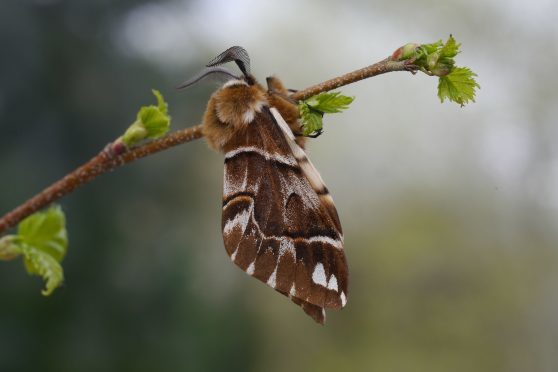It is best known for being home to iconic rare creatures such as wildcats and red squirrels.
But the Cairngorms National Park is also the final stronghold of six different types of threatened insects.
Now a new project is being launched in the heart of the park to save Scotland’s rarest invertebrates.
The shining guest ant, dark bordered beauty moth, small scabious mining bee, northern silver-stiletto fly, pine hoverfly and Kentish glory moth have all been identified by experts as needing urgent conservation action.
RSPB Scotland, the Cairngorms National Park Authority (CNPA), Buglife, Butterfly Conservation and Scottish Natural Heritage (SNH) will work in partnership on the rare invertebrates in the Cairngorms project over the next three years to improve the conservation fortunes of these six insect species.
Volunteers will be recruited to help with surveying work that will establish the size and distribution of the species’ populations, as well as implementing practical management on the ground to help them thrive.
The initiative will be funded by the European Agricultural Fund for Rural Development.
Some of the smaller, lesser known species can be even more fascinating than the iconic creatures the park is best known for.
Shining wood ants do not create their own nests, they simply move in to those of regular wood ants. The “squatters” can be easily identified by their extremely shiny coat of armour.
Small scabious mining bees meanwhile can only be found in Scotland in the Cairngorms and feed exclusively on a plant known as devil’s-bit scabious – so called because the roots come to an abrupt end as if the devil had bitten them off.
Despite its name, the only area of the UK the Kentish glory moth can be found is the north of Scotland.
Gabrielle Flinn, projects officer for the rare invertebrates in the Cairngorms project, said: “For the next three years the project will be working to conserve some of these rare species spread across the parks key habitats, from aspen woodland to flower rich grasslands. We’ll be relying on people in and around the park to lend a hand, so if you’re passionate about the smaller things in life we’d love to hear from you.”
